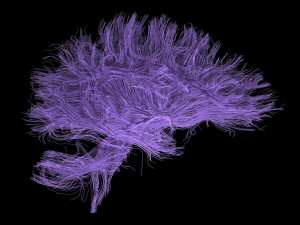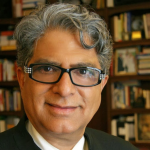
This is the fourth in a series of posts about the “mind.” Like others in this series, Chopra makes the point that the brain is a medium of experience, and it is a limited medium. In studying the brain, empirical science cannot explain or account for the mental activity involved in relationships, language, thought, and action. To understand this mental activity – its importance and power – calls for a new understanding of the mind. It’s an understanding, Chopra says, that opens the way for the inclusion of spiritual experience and reality in human experience. – Tom Z

The Mystery of God and the Brain
By Deepak Chopra, M.D., FACP and Jordan Flesher, BA Psychology
Two interesting points follow:
1. All models are equal as viewed from the level of the brain.
2. Reality transcends any model we can possibly make of it.
These two points allow God, the soul, and all other spiritual experiences back into the picture. The first point demolishes the notion that science is superior to religion because it gathers facts while religion deals in beliefs. In truth, science filters out and discards a huge portion of human experience – almost everything one would classify as subjective – so its model is just as selective, if not more so, than religion’s. As far as the brain is concerned, neural filtering is taking place in all models, whether they are scientific, spiritual, artistic, or psychotic. The brain is a processor of inputs, not a mirror to realty.
The second point is even more telling. If our brains are constantly filtering every experience, there is no way anyone can claim to know what is “really” real. You can’t step outside your brain to fathom what lies beyond it. Just as there is a horizon for the farthest objects that emit light in the cosmos, and a farthest horizon for how far back in time astronomy can probe, there is a farthest horizon for thinking. The brain operates in time and space, having linear thoughts that are the end point of a selective filtering process. So whatever is outside time and space is inconceivable, and unfiltered reality would probably blow the brain’s circuits, or simply be blanked out. Unfiltered reality would be like listening to every channel on the radio simultaneously, an impossibility.
Korzybski held that even mathematics was a model, subject to the limitations of all models that the brain constructs. Not everyone would agree – holding on to mathematics as a universal truth gives advanced physics its toehold on the quantum world. But in this post we are not using any of these ideas as bludgeons to bash science. All agendas aside, Korzybski simply pointed out, using the language of mathematics, that whatever reality is, it transcends the brain.
In a single word – transcendence – there’s a level playing field between science and religion. Reality transcends, or goes beyond, what the brain discerns. If something supernatural springs from the transcendent, such as a holy vision, materialists and skeptics may argue that it can’t be real. Actually, there’s no way to prove that even a natural experience is real. Seeing angels and seeing a tree, mountain, or cloud are equally inexplicable. As the noted physicist Freeman Dyson has asserted,
“To summarize the situation, we have three mysteries that we do not understand: the unpredictable movements of atoms, the existence of our own consciousness, and the friendliness of the universe to life and mind. I am only saying that the three mysteries are probably connected. I do not claim to understand any of them.”
Since the three mysteries are woven into the very basis of our existence, the wisest course is to bring the scientific and spiritual models together in order to see if they can fill in the blanks that come with each model. Models are right about what they include and wrong about what they exclude. Conceding this fact would do a great deal to put spirituality on a plane where it can be taken seriously as an exploration that’s as serious and truthful as advanced science.
